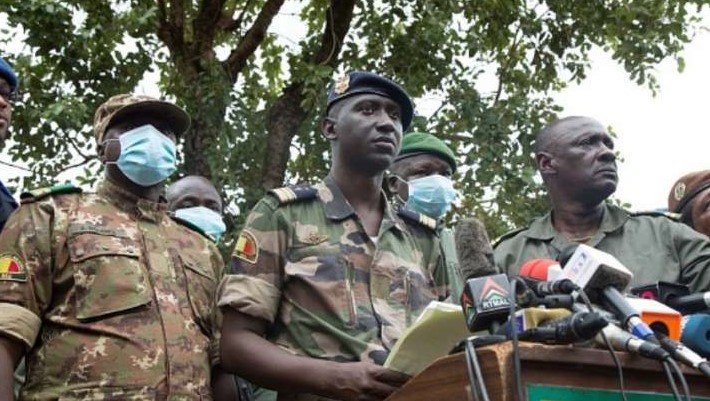By CISA
BAMAKO,AUGUST 21, 2020 (CISA)-Bishop Jonas Dembélé, chairperson of the Episcopal Conference of Mali (EMC) has termed the August 18 military coup that saw the removal of President Ibrahim Boubacar Keïta and Prime Minister Boubou Cissé as “regrettable” and “a failure for the country’s democracy.”
“The military coup that led to the ousting of President Ibrahim Boubacar Keïta is regrettable because we are in a state of law and democracy. This is the second time that Mali has had a military coup as a result of the way in which the country is governed. It is a big failure for our democracy even if there were reasons for it,” he said August 19.
He lamented the failure of Malians to use dialogue to solve the political crisis.
“Why is it that we Malians have not managed to engage in dialogue to be able to discuss these problems and face up to these challenges responsibly? Our leaders, our people, lack transparency. They hate those who speak the truth and advocate for good governance. This mentality must change for our country to move on,” he quipped.
Bishop Dembélé, said that military leaders must, “Ensure a return to democracy as promised but most especially ensuring the new leadership of the country put the people first and tackle the security challenges facing the nation.”
Speaking about the efforts of the Church to advocate for peace and good governance, he bemoaned the failureof their efforts tobe taken seriously.
“The bishops in Mali have always issued messages before every election in our country, sounding the alert, and inviting the government to organize transparent elections, ensure good governance and better management of resources, but it seems our messages are never taken into consideration that is why we find ourselves in this situation today,” he said.
Calling for sincere dialogue, the bishop urged citizens to examine their conscience and consider their African values that encourage Justice and reconciliation.
“We all want change in our country, but this change can only be possible if individually we seek the path to conversion. It is for Malians, be they Muslims or Christians or members of traditional religion, to do an examination of conscience and accept personal and community conversion in order to engage in sincere dialogue,” the bishop said.
“This dialogue must take into consideration our traditional African values that encourage justice and reconciliation,” he added.
On August 18, Mali’s president and prime minister were arrested by the military following a mutiny spawned on by protests over continuing economic woes and a worsening national security situation. They both resigned August 19.
